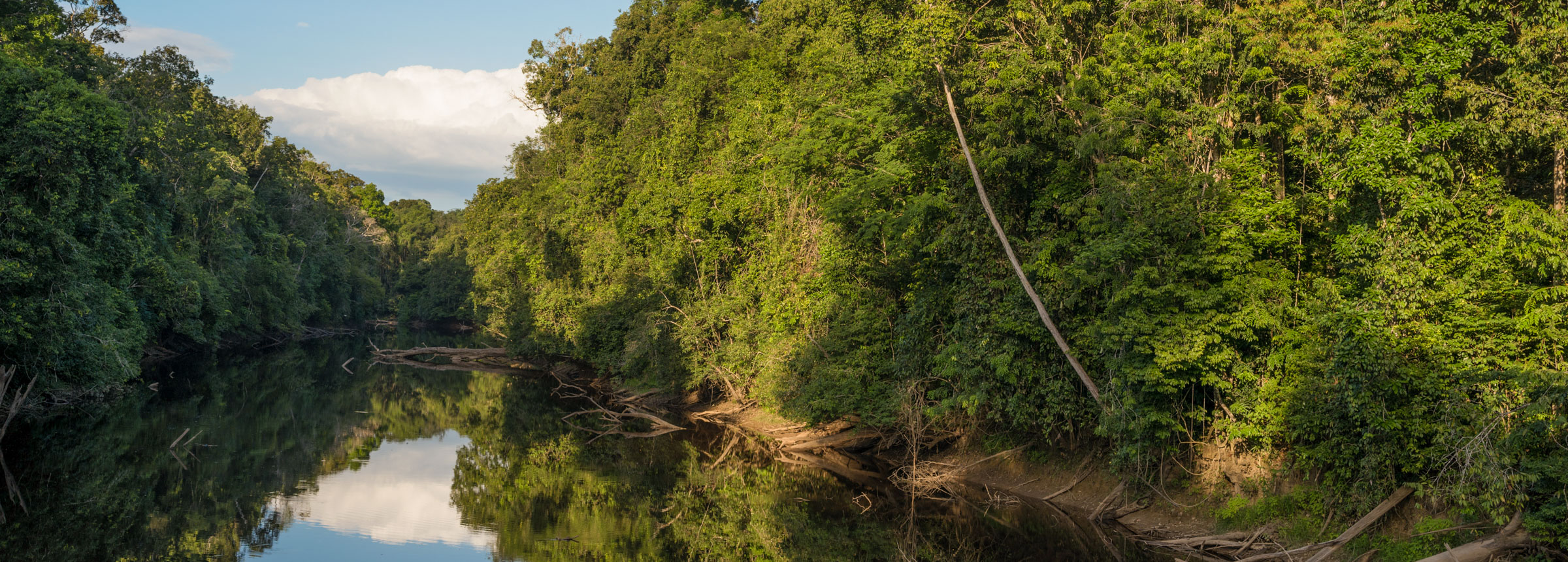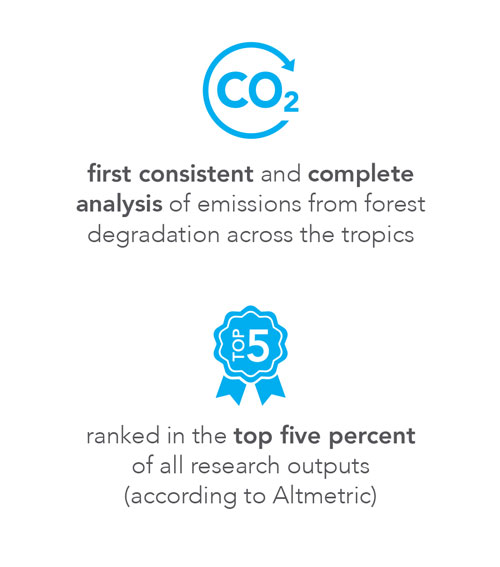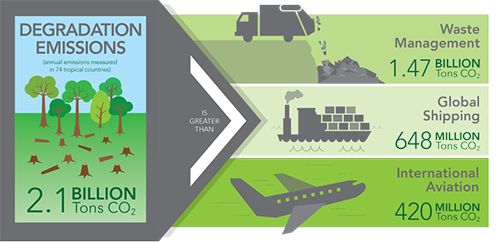
A Winrock Breakthrough on Forest Degradation

When viewed from above, deforestation is a brown gash in a green world, vivid proof that what was once verdant has succumbed to the axe or the bulldozer. Forest degradation – the loss of trees from logging, fires or harvesting firewood – is much more difficult to detect, even by remote-sensing satellites. For that reason, there’s been no clear, concise measurement of the carbon emissions that result from forest degradation. Until now, that is.
Scientists from Winrock International’s Ecosystem Services Unit recently published the first consistent and complete analysis of emissions from forest degradation across the tropics. The results are surprising: in 74 tropical countries, 2.1 billion tons of carbon are released through forest degradation each year, a number larger than the total emissions from all but the world’s three largest emitters (China, the U.S. and India) and far more than the 420 million tons of emissions that come from international aviation every year.
Besides being a pioneering scientific breakthrough, this research on forest degradation is of particular importance to Winrock’s mission of empowering the disadvantaged, increasing economic opportunity and sustaining natural resources. Improved knowledge about forest degradation and its impacts translates into better planning that simultaneously helps improve the livelihoods of many of the world’s poorest people who depend on the resource, while also ensuring the long-term sustainability of forests.
This degradation study is just the most recent coup for Winrock International’s Ecosystem Services team, which for almost two decades has been developing tools that promote sustainable approaches to natural resource management. A pioneer in REDD+ (Reducing Emissions from Deforestation and Degradation), the Ecosystem Services unit has helped countries like Guyana and Chile realize the economic benefits of conservation.

The degradation study also represents some of the last completed work by senior scientist Dr. Sandra Brown, former Ecosystem Services Director and lead author of five Intergovernmental Panel on Climate Change Reports, for which she was recognized when the IPCC won the Nobel Peace Prize in 2007. Brown passed away just days before the study was published, but its value in the work that Winrock does will be lasting. “Sandra always used to say that we can’t put a fence around forests,” says Tim Pearson, lead author of the study and Ecosystem Services Director. “Doing that would be good for greenhouse gas emissions, but it’s not realistic. We need to work out how forests can be used to benefit those who count on them for their livelihoods – but do no lasting damage to the planet.”
